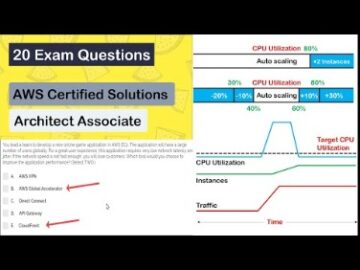
Fair market value is defined as the price that a property might be expected to sell for in an open market. In contrast, an assessed value estimates a property’s worth based on input from government tax assessors and determines how much that an owner can expect to pay in property taxes. Put simply, assessed value is the amount your local government thinks your home is worth; it’s what is used to determine property taxes. Appraised value, though, is the amount a professional home appraiser thinks your home is worth; it’s typically used by lenders when considering a mortgage application. Does the assessed value have anything to do with the actual market value of a home?
- Look
for the appraisal contingency in your purchase agreement which protects you if
you want to abandon the sale and sometimes refunds your earnest money to you. - Bankrate follows a strict
editorial policy, so you can trust that our content is honest and accurate. - Plus, a professional appraiser can provide a somewhat accurate estimate.
- The tax assessor will likely inspect the exterior and interior of your home, although you generally have the right to refuse him access to your house or property (the law on this varies from state to state).
- What’s the difference between an appraisal and an assessment – and how are these terms defined in real estate jargon?
Appraisals can reveal if the property is worth less than the seller’s
asking price. In that case, you can either walk away and save your money (as
long as you have an appraisal
contingency), or you can try to renegotiate the price with the seller. Look
for the appraisal contingency in your purchase agreement which protects you if
you want to abandon the sale and sometimes refunds your earnest money to you.
Lennar builds new homes in 22 states across the country
So if, say, the market value of your home is $200,000 and your local assessment tax rate is 80%, then the taxable value of your home is $160,000. That $160,000 is then used by your local government to calculate your property tax bill. This article is based
on the personal experience of the author, who is not a legal or tax
professional, and does not reflect the views or opinions of Lennar Corporation
or its affiliates. Depending on the state and locality, assessors may be required to personally visit properties periodically for assessment purposes. Owners who want to dispute the assessed value placed on their property can request a reassessment, which is a second evaluation of the property. Once you provide details about the current condition of your property, a board will review your appeal.
Summit County property values rise 34%; Scalise explains process – Akron Beacon Journal
Summit County property values rise 34%; Scalise explains process.
Posted: Wed, 02 Aug 2023 10:10:24 GMT [source]
If the second appraiser finds discrepancies with the first valuation, your lender may be willing to accept a different value. For example, say the market value of your home is $150,000 and the assessment rate for your county is 80%. After doing this research, and weighing all of these factors, the appraiser will render an estimate on what they believe to be the fair market value of your property. In all, considering these two different methods for determining the value of a property serves as an important reminder of just how complex, and costly, the real estate process can be. On the one hand, you might go back to your appraiser armed with additional information and comps and seek to plead your case.
The key takeaway is that appraised value is used by lenders to ensure they’re not lending you too much based on the property’s worth. As a buyer, the assessed value gives you an idea of what you can expect to pay in property taxes each year. Before you make an offer on any property, you should factor the expected annual property taxes into your budget. If you can’t afford the taxes on a property based on its assessed value, it’s important to know this before diving in headfirst. Proximity to less-than-desirable features could negatively affect the appraised value.
We are compensated in exchange for placement of sponsored products and, services, or by you clicking on certain links posted on our site. Therefore, this compensation may impact how, where and in what order products appear within listing categories, except where prohibited by law for our mortgage, home equity and other home lending products. Other factors, such as our own proprietary website rules and whether a product is offered in your area or at your self-selected credit score range can also impact how and where products appear on this site.
Tax Assessment Vs. Appraisal: Disputing The Different Valuations
You could very easily have a tax-assessed value that’s three or four years old. That figure wouldn’t necessarily reflect recent housing market conditions, for better or worse. Whereas you could ask a real estate agent to produce a CMA report with an up-to-date fair market value. It’s important to understand that fair market value is different from a list price or appraised value.
Residential real estate appraisal valuation in Virginia with over 20+ years experience, VA certified and FHA approved. While the exact formula used to determine your house value can vary from state to state — and often, county to county — most tax districts follow the same basic approach. Depending on the state and county you live in, your house may be revalued (re-assessed) every year, every other year, or on some other schedule. Here in North Carolina revaluation schedules range from every four years to every eight. In Durham, and neighboring Wake County, properties are revalued every eight years.
What is tax-assessed value on a home?
If you’re interested in buying a home, consider its attached property taxes to be as instrumental in your decision making as its asking price. You may also want to use property tax rates to guide which counties you look to buy in, since something as simple as moving to the next zip code could mean big tax savings. Nobody likes to pay a big tax bill, but if it’s any consolation, your property taxes go to some pretty important things. This includes schools, roads, police forces and other public safety initiatives, libraries, and local government salaries.
After all, that’s not exactly fair to homeowners who don’t want to sell and are stuck with the rising tax bill. Use the information provided in your property tax bill and your county’s real estate tax rate. The content on this site is not intended to provide legal, financial or real estate advice. It is for information purposes only, and any links provided are for the user’s convenience. Please seek the services of a legal, accounting or real estate professional prior to any real estate transaction. It is not Zillow’s intention to solicit or interfere with any established agency relationship you may have with a real estate professional.
Apply Online with Rocket Mortgage
That value is then used by local
taxing authorities to determine what you will pay in property taxes. Assessed value is the dollar value assigned to a home or other piece of real estate for property tax purposes. It takes into account the value of comparable properties bookminders: outsourced accounting and bookkeeping services in the area, among other factors. In many cases, the assessed value is calculated as a percentage of the fair market value of the property. Individuals can also purchase an appraisal on their own or hire a real estate agent to perform a comparative market analysis.
This report will state the home’s appraised value and list observations about the property. When considering a property’s assessed vs. appraised value, it helps to have a better sense of how these estimates work. As a homeowner, you can dispute a home appraisal if you believe it’s too low. Look for errors and things the appraiser might have missed during the inspection.
After all, those two expenditures make up the largest share of your housing costs. Our step-by-step guide will teach you how to sell your home and reach a smooth closing day. For example, a reassessment of a property’s value may only be required once every 5 years or as often as once per year. An upcoming reassessment could alter the assessed value to a more appropriate level. While they may sound similar, they are very different and this article is meant to help you understand the differences.
The Bankrate promise
Appraised values are useful because a company’s balance sheet will report its land and buildings at the cost when they were acquired and will report the accumulated depreciation of the buildings. (Land is not depreciated.) Therefore, if the company wants to refinance its real estate, a current appraisal will usually be required. But the thing to remember with values both market and assessed is that at the end of the day, the price of a home is the amount for which a seller is willing to sell, and a buyer is ready to buy. The only number that matters is the price a buyer and a seller agree on.
If there is a discrepancy between the content of the translated page and the content of the same page in English, the English version will prevail. We can’t stress enough that assessment ratios can vary significantly across state lines. You might recall that Cook County, Illinois, calculates 10% of the market value. But in Massachusetts counties, your assessed value will equal 100% of your fair market value. When calculating mortgage payments, most people focus on principal and interest.
Putting Property Taxes Into Perspective
The findings determine the amount a lender will let you borrow for the property. While a home’s value in the market can rise and fall precipitously, based on local conditions, assessed values are typically not as sensitive to fluctuations. The appraised value of a property will not necessarily correspond to the home’s market value. In a bidding war, it is common for a home to sell for a price above the appraised value. This also may occur if the real estate market in an area is particularly hot. The assessed value for each property is the amount used for tax purposes.

Your home’s appraised value effectively reflects what you might expect to get in exchange for the sale of the property if you put it up at market. Its tax-assessed value is instead used to determine how much you can anticipate paying each year in property taxes. They will also compare your real estate holding to other comparable homes in your nearby area. It’s important to recognize that assessed value does not always reflect market value, and is not necessarily a reliable indicator of market value when you’re buying or selling the home. Because this number is only determined every few years, it may lag somewhat behind the current market value of your home. It may also fail to reflect specific characteristics and features that make your property unique.

Leave A Comment